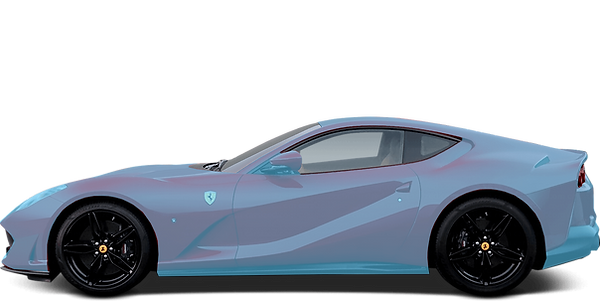
Paint Protection Film Sheffield
Protect your vehicle's finish with our Paint Protection Film (PPF) service. Our high-quality PPF creates an invisible shield over your paintwork, guarding against chips, scratches, and environmental damage while preserving your car's flawless appearance. Keep your vehicle looking pristine and protected for years to come.
Front End
Paint Protection Film
Our front end PPF Package protects the most vulnerable and therefore frontal areas of your vehicle.
This normally includes:
- Front bumper
- Headlights
- Bonnet
- Wings
- Wing mirrors
- A Pillars
- Front of roof

Price from £1600




Long Lasting Protection
Enhanced Gloss and Shine
Hydrophobic Properties
Resists Minor Scratches
Our Paint Protection Film Process
Inspection
Before we begin the application of Paint Protection Film (PPF), we conduct a meticulous inspection of your vehicle’s paintwork. Our experienced technicians assess the surface for any existing imperfections, such as scratches, chips, or blemishes. This thorough examination ensures that the paint is in optimal condition before the film is applied, as any flaws left untreated could be sealed beneath the protective layer.
Preparation
Once the inspection is complete, we move on to the preparation stage. Your vehicle undergoes an extensive washing and decontamination process to eliminate all surface contaminants, including dirt, road grime, tar, and other residues. We also use a clay bar to lift any embedded particles from the paint, ensuring a perfectly smooth surface. This step is crucial because the cleanliness and smoothness of the paintwork directly impact the effectiveness and appearance of the PPF.
Precision Application
With the surface fully prepped, our skilled technicians begin the precise application of the Paint Protection Film. Using cutting-edge techniques, we carefully apply the PPF to the designated areas of your vehicle, such as the hood, bumper, mirrors, and other high-impact zones. The film is meticulously aligned and smoothly adhered to the surface, ensuring full coverage without any bubbles, wrinkles, or visible seams. Our team takes special care to wrap the edges for a seamless finish that is virtually invisible. The self-healing properties of the film mean that minor scratches and swirl marks will disappear with heat, keeping your car’s finish looking flawless.
Final Inspection and Curing
After the PPF has been applied, we conduct a detailed final inspection to ensure the film has been flawlessly installed. We check for any imperfections, ensuring that the film is perfectly smooth and securely bonded to the paint. The vehicle is then allowed to cure in a controlled environment, allowing the adhesive to fully set and the film to conform perfectly to the vehicle's contours. This curing process ensures the longevity and durability of the PPF, providing long-lasting protection for your vehicle.
Post-Application Care
Once the application and curing process is complete, we provide you with specific aftercare instructions to ensure the longevity of your Paint Protection Film. We recommend avoiding washing the vehicle for a few days and suggest best practices for cleaning and maintaining the PPF in the future. Our goal is to help you preserve the pristine appearance of your vehicle and make the most of your investment in PPF.


